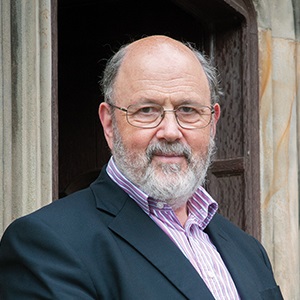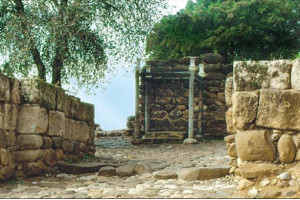
At a Glance
- Gain deeper understanding of the purpose of the New Testament and greater ability to bridge the gap between the first-century understanding of the kingdom and our lives as twenty-first-century Christians
- Knowledge of each New Testament book, including their significance, textual layout and content, and critical topics that provide commentary with implications for Christian life today
- Access to all course material—video lectures, readings, key concept reviews, and quizzes
- Access to the Cerego learning system to build memory retention of course objectives
- 24/7 access for 12 months to complete the course at your own pace
More Details
Enter the world of the New Testament. This course will serve as your passageway from the twenty-first century to the era of Jesus and the first Christians. An ideal guide, The New Testament in Its World course addresses many difficult questions faced by those studying early Christianity.
On-location and in-studio videos, maps, charts, diagrams, and photos will immerse you into the world of the New Testament as this course takes you on a journey with Wright and Bird to Jerusalem, Corinth, Athens, Rome, Nazareth, Qumran, Capernaum, and the shores of the Sea of Galilee.
This course brings together decades of ground-breaking research, writing, and teaching into one learning experience that will open stduents’ eyes to the larger world of the New Testament. It presents the New Testament books as historical, literary, and social phenomena located in the world of Second Temple Judaism, amidst Greco-Roman politics and culture, and within early Christianity.
Course Outline:
- Beginning Study of the New Testament
- The New Testament as History
- The New Testament as Literature
- The New Testament as Theology
- The History of the Jews between the Persian and Roman
Empires
- The Jewish Context of Jesus and the Early Church
- The Greco-Roman Context of the Early Church
- The Study of the Historical Jesus
- The Profile and Praxis of a Prophet
- Who Did Jesus Think He Was?
- The Death of the Messiah
- The Afterlife in Greek, Roman, and Jewish Thought
- The Story of Easter According to the Apostle Paul
- The Story of Easter According to the Evangelists
- The Story of Paul’s Life and Ministry
- A Primer on Pauline Theology
- Galatians
- 1 and 2 Thessalonians
- Philippians
MIDTERM - Colossians, Philemon, and Ephesians
- 1 and 2 Corinthians
- Romans
- The Pastoral Epistles
- The Gospel According to Mark
- The Gospel According to Matthew
- The Gospel According to Luke and Acts of the Apostles
- The Gospel According to John
- The Making of the Gospels
- Introduction to Early Christian Letters
- The Letter to the Hebrews
- Letters by Jesus’s Brothers: James and Jude
- Petrine Letters: 1 and 2 Peter
- Johannine Letters: 1, 2, and 3 John
- Revelation
- Introduction to Textual Criticism of the New Testament
- The Canonization of the New Testament
- Bringing It all Together
FINAL EXAM
About the Technology
Authors & Instructors

N.T. Wright
D.Phil. and D.D., University of Oxford
N. T. Wright is professor of New Testament and Early Christianity at the University of St. Andrews in Scotland and also senior research fellow at Wycliffe Hall, Oxford.

Michael F. Bird
PhD., University of Queensland
Michael F. Bird is a lecturer in theology at Ridley College in Melbourne, Australia. He is the author of many books, including Jesus and the Origins of the Gentile Mission, The Saving Righteousness of God: Studies on Paul, Justification, and the New Perspective, and Evangelical Theology, and editor of The Apostle Paul: Four Views. He blogs at the New Testament blog Euangelion.




-300x200.jpg)
